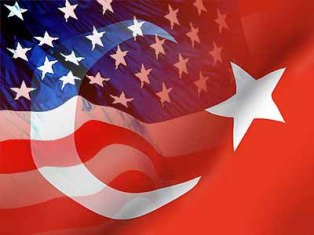Syria: Towards a Clash of US and Turkish Forces?

According to The Daily Telegraph, Washington might get into difficulty in Syria because of the confrontation between Turkey and the Kurdish forces, who are arguing about Raqqa assault, is daily getting more and more aggravated.
Ankara considers that the Kurdish forces in Syria are terroristic, and connect with the Kurdistan Workers’ Party (PKK) which is banned in Turkey. The U.S., for its part, is trying to cover up contradictions between its allies in the region and prevent direct clashes between them. For Washington, the situation is complicated by the fact that each side demands from it to ban the other party’s participation in the offensive. Because of this, the operation to liberate Raqqa from ISIS can stall or turn into complete chaos. The tension between the Kurds and the Turks is so great that the Pentagon deployed its troops between the parties to prevent direct confrontation.
It is known that Washington made a bid for the Kurdish forces as the most battle-worthy force, long ago. In addition, the U.S. forces are training and supplying them with modern weaponry. Undoubtedly, such close cooperation between Washington and the Kurds causes Turkey’s discontent.
In turn, the Kurdish-led Syrian Democratic Forces (SDF) considers that Turkey is an occupier of northern Syria, and intends to do everything possible to prevent any participation of Turkey in the military operation to liberate Raqqa from the terrorists. Talal Selo, SDF spokesman, said this in an interview to the Iranian Fars. Answering the question about the possibility of Ankara’s participation in the liberation of the self-declared ISIS capital in Syria, the Selo also added that the Kurds will not allow Turkey to seize new areas of Syria.
It is obvious that the U.S. plans to conduct a joint operation to liberate Raqqa from ISIS militants are doomed to failure. Perhaps, never-ending contradictions between the Kurds and Ankara can affect the fact that the relations between the U.S. and Turkey will be noticeably spoiled.
If Washington takes the side of Ankara (it is highly unlikely), the Kurds may refuse assistance from the U.S., and more closely cooperate with the official Damascus in the fight against the ISIS. This has already been proved by the placement of some villages in northern Syria under the control of the government forces.
Obviously, then Kurdish detachments will be able to avoid direct confrontation with the Turkish army. For Washington, the refusal of the Kurds from the cooperation means the failure of all its plans. Therefore, the U.S. will most likely prefer the Kurds to Turkey. However, in this case, such developments may lead to increased tensions between NATO partners.

